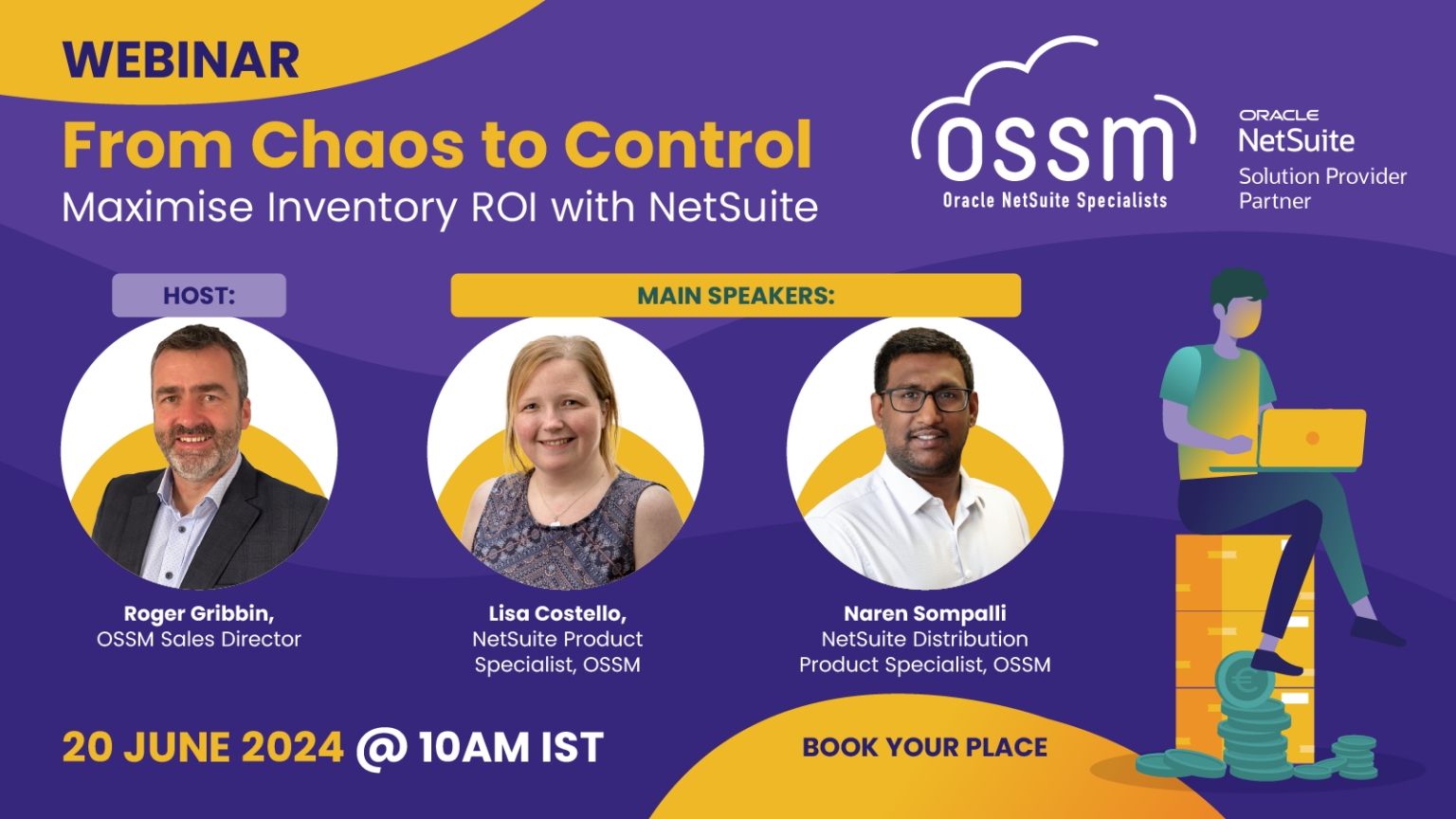
- NetSuite ERP, NetSuite Financial Management
For CEOs focused on driving business growth, Enterprise Resource Planning (ERP) software can be transformative. A unified system simplifies operations, consolidates data, and supports smarter, faster decision-making. ERP gives leaders the real-time visibility they need to make informed choices, keep teams aligned, and stay ahead in competitive markets.
Yet, not every ERP system delivers on its promise. When software fails to integrate with essential tools, adapt to evolving needs, or provide a clear business overview, performance stalls. Many organisations view ERP as a “set and forget” solution, assuming it will scale naturally over time. In truth, even the strongest ERP systems need ongoing review and optimisation as companies grow and their operations become more complex. Ignoring this can cost CEOs valuable time, profits, and peace of mind.
The hidden costs of ERP limitations
ERP systems are meant to offer clarity and control – but when they fall short, they often drain resources and slow progress. Common pain points include:
Fragmented Data – When information is scattered across finance, CRM, projects, and other systems, CEOs are left piecing together reports manually.
Rigid Workflows – Inflexible systems force teams to adapt to the software, instead of the software supporting the way the business works.
Delayed Visibility – Without real-time dashboards, leaders rely on outdated data, making decisions based on yesterday’s performance.
Poor Integration – Disconnected systems cause duplication, bottlenecks, and costly errors.
Complex Upgrades – Legacy platforms often require expensive, time-consuming upgrades just to keep up with modern operations.
The outcome? Lost hours, missed opportunities, and sleepless nights wondering whether the business is truly on track.
A common CEO dilemma
Ray Ryan, CEO of OSSM, describes an experience that many leaders will recognise:
“Before NetSuite, our data was scattered across finance, CRM, and project management tools. Now, everything sits in one database. From project profitability to cash flow forecasts and sales pipelines, I can get a complete view of our performance in seconds. That visibility has been critical to running the business effectively.”
Ray’s story mirrors what many CEOs encounter. When outdated systems aren’t reassessed or reconfigured for evolving challenges, efficiency suffers. NetSuite ERP removes those barriers – delivering flexibility, visibility, and value without compromise. In a fast-moving market, having an integrated, all-in-one solution helps leaders stay agile and competitive.
Common ERP limitations CEOs must address
Recognising and resolving common ERP limitations enables CEOs to decide when it’s time to upgrade their software. Key challenges include:
Isolated Data & Blind Spots – Disconnected systems hide valuable insights and increase business risk.
Manual Workarounds – Reliance on spreadsheets and offline tools slows productivity and introduces errors.
Slow Decision-Making – When reports take too long to compile, opportunities slip by.
Integration Headaches – Systems that don’t connect easily to new apps or technologies limit innovation and agility.
These issues often surface during growth, transformation, or compliance change. CEOs who identify and address them early can prevent disruptions to performance and profitability.
Why ERP needs continuous re-evaluation
ERP software isn’t a one-time investment – it’s a strategic asset that must evolve with your organisation. As your business expands, diversifies, or adopts new technology, regular ERP assessments ensure the system remains aligned with your goals.
Key reasons to review your ERP include:
Growth & Expansion – Multi-entity operations, global compliance, and new products require adaptable systems.
Process Change – New business models or regulations call for refreshed workflows and configurations.
Tech Innovation – Advances in cloud, integration, and AI offer capabilities that should be leveraged.
Security & Compliance – Ongoing regulatory change demands strong controls and reliable audit trails.
Team Needs – Modern teams expect accessible, user-friendly, and collaborative digital tools.
Consistent ERP evaluation keeps your technology aligned with your strategy – preventing stagnation and maximising return on investment.
What makes NetSuite different for CEOs
NetSuite is a cloud-based ERP designed to grow with your business, giving CEOs greater visibility and control. Its flexibility and automation simplify complexity and improve decision-making.
Personalised Dashboards – Get instant access to key metrics like cash flow, sales, and project performance from a single view.
Real-Time Data – Make informed decisions using accurate, up-to-the-minute information.
Scalability – Expand seamlessly with support for multiple entities, acquisitions, and new product lines.
Automated Workflows – Eliminate repetitive manual tasks, reducing errors and saving time.
Seamless Integration – Connect effortlessly with other business systems to ensure smooth data flow and consistent insights.
From daily operations to strategic oversight, NetSuite empowers CEOs with clarity, efficiency, and confidence.
Choose OSSM to upgrade your ERP
If your existing ERP leaves you uncertain, limits visibility, or slows your decision-making, it’s time to rethink your approach. NetSuite ERP brings together integration, automation, and real-time insight – the foundation for confident, data-driven leadership.
As experienced NetSuite consulting partners, OSSM helps UK businesses get the most from their ERP investment. From strategy and implementation to continuous improvement, our team ensures your system delivers measurable results.
Arrange a free ERP review with us and see how NetSuite can transform your operations and restore CEO peace of mind.
About the Author

Sinéad Galligani
Sinéad has been involved in the software industry, particularly in ERP, for over 25 years. Her career has spanned various roles, including Account Management, Key Account Management, and Business Development. In 2013, she became the Marketing Manager for The Noledge Group and now serves as the Chief Marketing Officer (CMO).


























